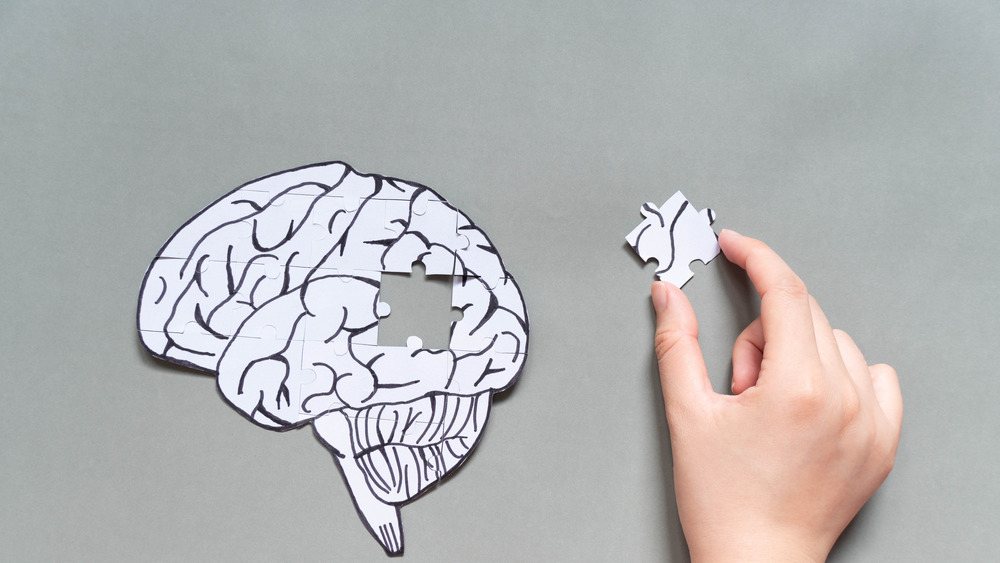The Surprising Way The Keto Diet Helps Your Brain
The keto diet, while widely popular, has been subject to much speculation by professionals and doctors. While some view the diet as a dangerous fad, studies show that the keto diet provides some brain-boosting benefits. Created by Dr. Russell Wilder in the 1920s, the ketogenic diet was originally used to treat drug-resistant epilepsy in children. According to the Epilepsy Foundation, doctors continue to recommend the keto diet to children who do not respond well to medications.
More promising research has emerged through the years regarding the effects of a high-fat, low-calorie diet on brain health, and notably, the reduction of cognitive decline (via Medical News Today). Scientists from the Sanders-Brown Center on Aging at the University of Kentucky have already completed two encouraging studies with mice, and according to author Ai-Ling Li they were "delighted to see that we might indeed be able to use diet to mitigate risk for Alzheimer's disease." The data also showed that restricting calories in aging mice could improve neurovascular and metabolic functioning, essentially protecting the brain from damage.
More possible brain benefits
The keto diet induces a state of ketosis, when the body relies on fat instead of glucose as its primary fuel source. In this state, the liver is then prompted to produce ketone bodies, shown to protect the nervous system cells (via Healthline). This effect can be beneficial for those with multiple sclerosis (MS), as some research shows it can be helpful in treating the neurodegenerative component of the disease (per Medical News Today). Similar to the keto diet is The Wahls Protocol, created by Dr. Terry Wahls, who claims she reversed her MS symptoms with a more paleo approach (per WebMD). Similar to keto, the diet includes meat and fish, vegetables, and fats, especially omega-3 fatty acids, and avoids grains and sugars.
Although more research is needed, studies show that the keto diet can also be neuroprotective by lessening oxidative stress, maintaining energy metabolism, and regulating inflammation. According to Healthline, further studies show the keto diet may be beneficial in reducing migraines, improving memory, and even improving symptoms in Parkinsons disease.


